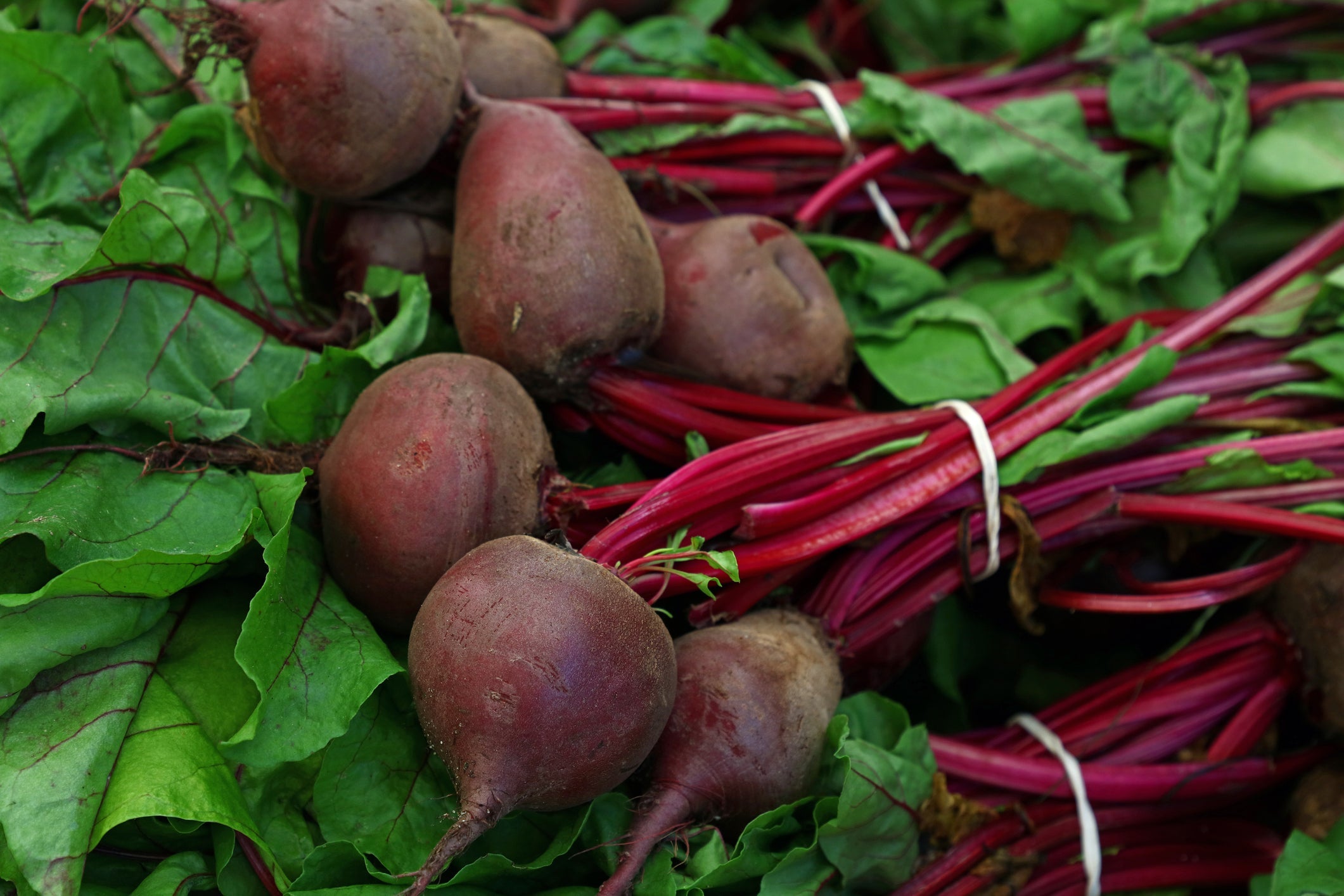One of our many tea friends, a nurse, uses that expression. Kind of cute and TRUE. One of the tales our bowel movements tell us is how well your digestive system is functioning.
The "Eat A Beet" Test
How long should it take for food to be digested? How fast does food move through your system? Does it matter? Here's an easy way to find out and some interesting info.
Buy a fresh beet. Grate it up (like a carrot) and eat a cup or more either by including it in a salad, or just enjoy with a little dressing. Then just start looking for it with your bowel movements. The bright red color should show up in 12 to 48 hours in the potty. That's the positive sign that things are moving normally. If it doesn't, then you need some My Miracle Tea!
There are several factors that determine how long it takes for food to pass through your digestive system.
To start with, the type of food matters. Some foods are more complex, requiring our body to work harder and to take more time to break them down and digest them. On the other hand, other foods won’t have to go through such a rigorous process and may be digested and metabolized relatively quickly. Fiber, for example, has a decreased intestinal transit time, which means that it spends less time in your intestines and may be passed through faster than something else.
The answer also could depend on other factors like age, ethnicity, and gender. You have to consider that people’s digestive systems can be different or work in slightly different ways.
Did you know that some people have longer intestines than other people? We have a number of regular Tea friends with exceptionally long and twisted colons that very much appreciate the “oomph” that the Tea provides to keep things moving.
Others have a condition where food simply does not move, and the Tea helps that too!
Certainly these things greatly influence how long it takes for food to digest. Also, individuals may have different levels of microbes present in their intestines that can influence how food is digested too. How long it takes food to digest depends on a lot of different factors.
One thing is for sure ... the tea gets (and keeps) things moving along in a lovely way! And you can't "beat" that!
But back to our test...
Since testing how your digestive system is functioning might not sound like much fun, how about adding the beat of a happy tune? I came up with “Ease On Down” from the old Broadway musical “The Wiz” You can hum “Ease on down, ease on down, ease on down the ro-oad …” as you eat your beet then wait to see how well it eases on down your own digestive road!
Holistic nutritionist Joy McCarthy says that “even though a lot of people are “regular,” they’re not eliminating effectively. The beet test allows you to get a sense of whether you fall into that ideal 12-24 hour range, since you’ll be able to see the bright red pigment in your stools.
Fiery red stool 24 hours or more after consuming the beet means you’ve got a “slow transit time” also known as constipation.
“That food is sitting in your gut for that many days,” said McCarthy, who suggested increasing the fiber in your diet as one solution. “Eating chia or flax seeds, more vegetables, pears or berries can combat constipation, but don’t overdo it if you’re not used to it.
“If you’re not someone who eats fiber, then you want to increase these fibrous-rich foods slowly because it can also have the opposite effect,” she said.
Drinking water is another key method to improve your digestion. “A lot of people have the slow transit time because they’re not consuming enough water. Their intestines just get very dehydrated and food just doesn’t move through effectively.”
Less common is if you’re seeing those beets in less than 12 hours. McCarthy said that means you’re not really absorbing all the nutrients from your food. You might be eating too fast and not fully chewing your meals, which will leave you with food particles in your stools.
Or you could have too many stimulants in your daily life, like coffee.
“You have less absorption of nutrients when you consume stimulants because they basically force food through the gut much faster,” she said. (That's very interesting for those of us who do not drink coffee or black tea!
So take your raw or roasted beets—peeled or unpeeled—and eat them as you wish: in bites or grated as a salad topping. McCarthy warns against using pickled beets from a jar since boiled, over-processed beets don’t have the rich red pigment that will stand out in your lavatory.
You can check out Joy McCarthy's several books at Amazon:
1) Joyous Health: Eat and Live Well Without Dieting
2) Joyous Detox: Your Complete Plan and Cookbook to Be Vibrant Every Day
Another helpful at-home strategy to promote digestive health is lemon and water first thing in the morning on an empty stomach. It won’t do anything weird to your body waste, but McCarthy said it’ll give you a better quality bowel movement. (A BQBM, if you will).
“Lemon helps stimulate the liver’s detoxifying enzymes. And it really helps to stimulate you to have a good bowel movement, because the lemon actually stimulates your gallbladder to produce bile, and bile—along with fiber—is a carrier of toxins.”
McCarthy said she recommends this for clients who have heartburn.
“You think that heartburn is excess acid, but 90% of people who have heartburn actually don’t produce enough acid,” she said. “They’re digesting by fermentation, which as a byproduct causes gaseous substances to push up through the esophagus and cause pain. So lemon and water is really helpful for preventing that.”
Use a quarter to a half of a freshly squeezed lemon in a cup of room temperature water, and drink it on an empty stomach first thing in the morning—for maximum absorption.

